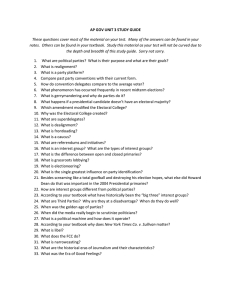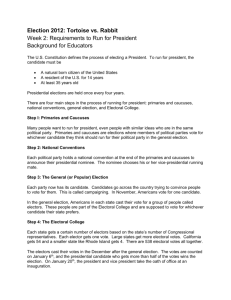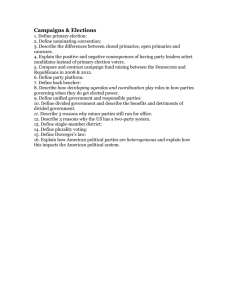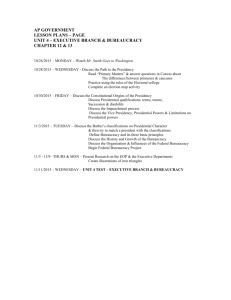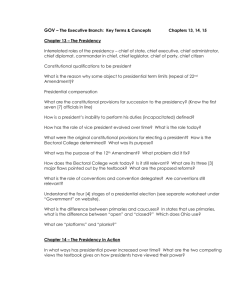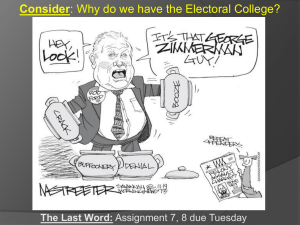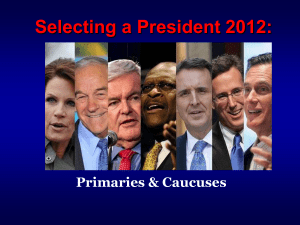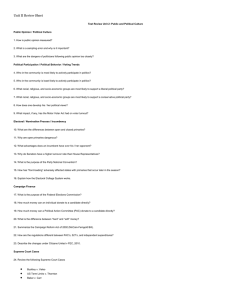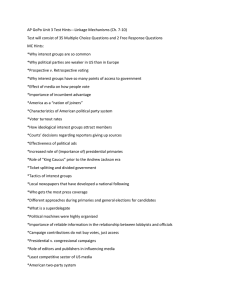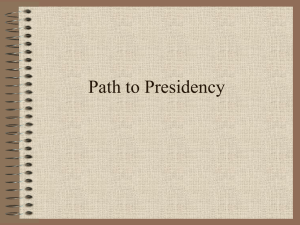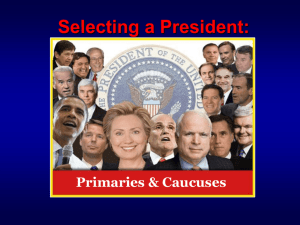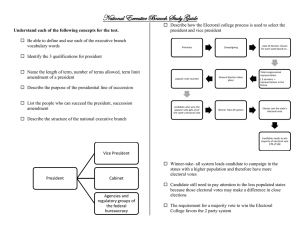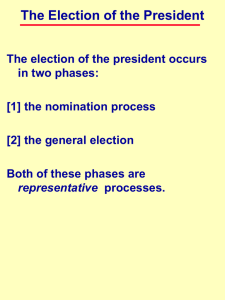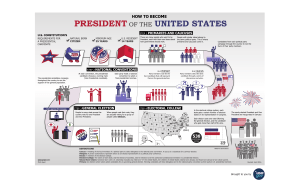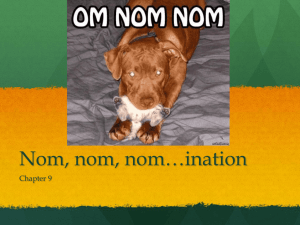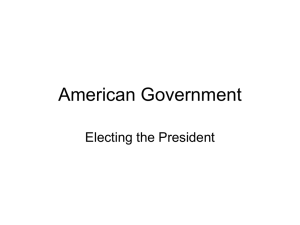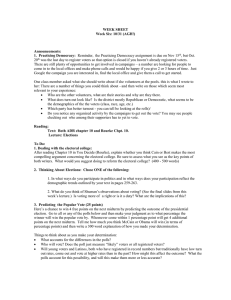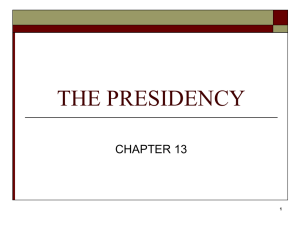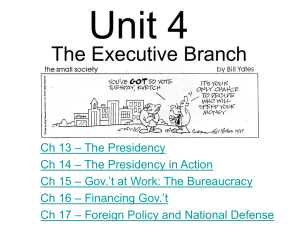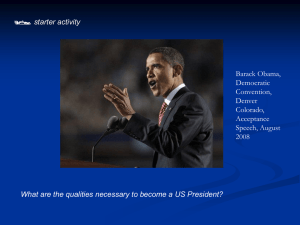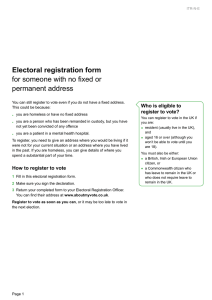The President The Executive Branch
advertisement
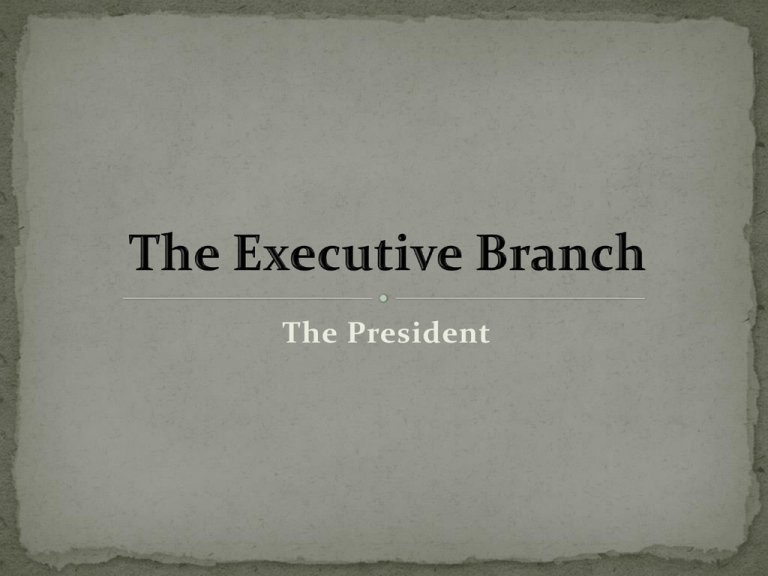
The President 1. Chief of State a. Ceremonial head of the people b. A “symbol/mascot” for the nation c. Like the Queen of England 2. Chief Executive a. Constitutional Powers b. To enforce the laws of the nation 3. Chief Administrative Officer a. Head of the bureaucracy b. Huge labor force to carry out the work of the government 4. Chief Diplomat a. Spokesperson of . America to the world b. Creator of US foreign policy 5. Commander in Chief a. Head of the US Armed Forces 6. Chief Legislator a. Sets the over-all shape of public agenda b. Works with Congress to. get policies enacted into law 7. Chief of the Party a. Not in the Constitution b. An automatic position c. The “Top Dog” in the party 8. Chief Citizen a. b. c. d. Represents the people Against big government Against big business What we would want to do in times of greatness or pain What if the President dies, resigns , gets removed or is disabled and can’t do the job? Vice President assumes office 2. Then … Speaker of the House 3. President Pro Tempore of Senate 4. Cabinet members 1. Nomination Get noticed Media Fundraising Primaries and Caucuses Choosing the PARTY candidate Open – can vote in either party Closed – can only vote for the party you’re registered in Primaries and Caucuses Candidates vie for party title to run for office Sports analogy Semi-finals Elimination rounds Early primaries are most important National Conventions Party Pep Rallies Formally announce Presidential Nominee Vice Presidential Nominee Party platform Debates General Election – the final contest for president The Electoral College Need 270 electoral votes Most states are “winner-take-all” Can lead to a “minority president” A president who wins the electoral vote But lost the popular vote Presidential focus Interpret laws to own feelings Delay or push action on certain laws Executive Orders Weight of law Policy needed by bureaucracy to function Executive Privilege Confidentiality Advisors need to be able to be open without constant public scrutiny Growing Bureaucracy President oversees the bureaucratic process Expanded Programs New Deal Legislation Social Security Act Federal Housing Administration Obama-Care 364 – 368 Complete worksheet 377 – 385 Complete worksheet 400 – 404 410 – 411 Answer “Thinking Critically” questions 1 & 2 from p. 411
